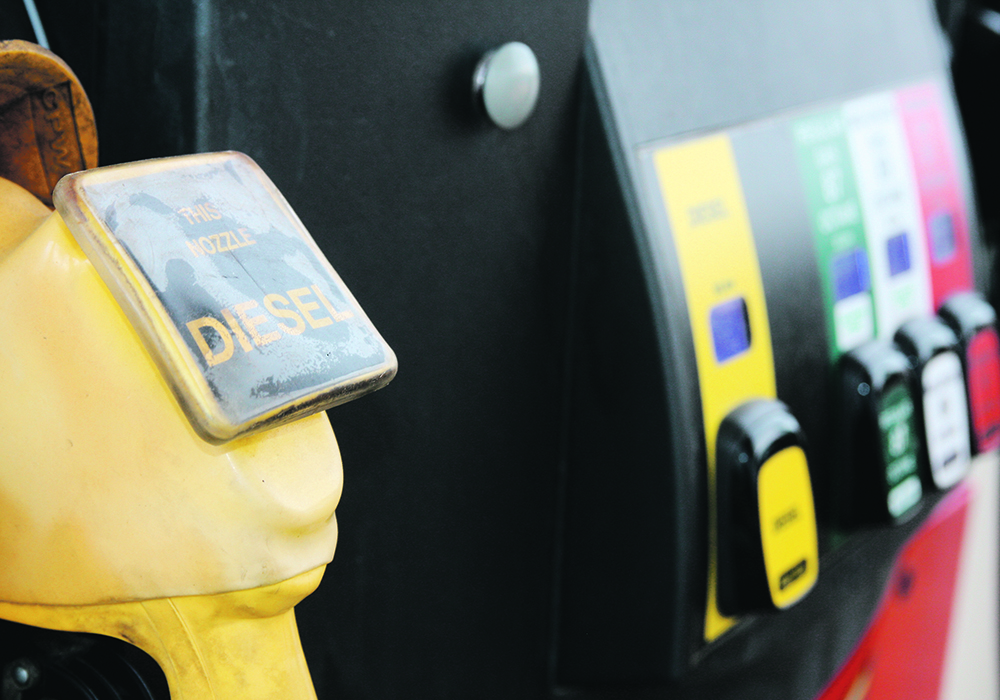I wonder if all the new renewable diesel projects announced across North America will be a solution to the shortage of oil-refining capacity or will they become the bad guys?
Fuel prices are posting record highs and a large reason for the run up is the rally in crude oil but even then, fuels are more expensive than they were in 2014, the last time crude climbed above US$100 per barrel.
In Canada, fuel prices carry the extra cost of the carbon tax that did not exist in 2014.
Read Also

Chinese, Indian tariffs take toll on pea prices
The disruption of pea exports from Canada’s largest customers will likely result in slow pea exports for the remainder of the crop year.
But even without a carbon tax, the markup between crude oil and finished fuel is wider than it was eight years ago.
In the United States where there is no carbon tax, West Texas Intermediate crude oil was US$90-$110 per barrel in the second half of 2013 and the first half of 2014.
The U.S. Energy Information Administration (EIA) said in the same period, No. 2 ultra-low diesel national average was around $4 per U.S. gallon.
In May this year, when WTI crude was around $100-$110, the latest data published by the EIA shows diesel averaged $5.71, or about $1.70 more than in 2013-14.
One of the explanations for the current higher fuel prices is that U.S. refining capacity is lower than it was before the pandemic.
In 2019, U.S. refining capacity was about 19 million barrels per day, but is now down by a little more than one million barrels.
It is not just a U.S. situation. Globally, about three million barrels per day of capacity have been lost since the start of the pandemic.
In the U.S. there were 135 refineries pre pandemic but now around seven have closed and several more are idled.
Early in the pandemic, demand for motor fuel plunged causing energy companies to shut down their least profitable, older operations.
Owners questioned the viability of large expenditures to rebuild refineries when auto industry executives expect they can meet U.S. President Joe Biden’s goal of having electric and electric hybrid vehicles make up half of all new car sales by 2030.
Also, any refinery refurbishment would face the cost of meeting government low-carbon goals.
So, some plants sit idle, but in other cases refinery owners decided to go after the new market for renewable diesel that meets new low carbon fuel standards, which they think will have a more sustainable return on investment.
A few conversions are already complete, such as Marathon Petroleum’s plant at Dickinson, North Dakota, but others are slated for production later this year or the next year or two.
Marathon is also converting a closed oil refinery in Martinez, California, near San Francisco, that once had a capacity of 161,000 barrels per day.
Full production of 47,000 b/d of renewable diesel is slated for sometime next year.
Phillips 66 is converting its 120,000 b/d Rodeo plant, also near San Francisco, to a 50,000 b/d plant producing renewable diesel, renewable gasoline and sustainable aviation fuel.
Other conversions are happening or planned in several other states.
Renewable diesel will also come from planned greenfield projects not associated with existing refineries.
These renewable fuel plants have smaller capacities than the original petroleum plants.
They will help address the oil refining shortfall but won’t completely replace it. And even with all the projects announced or considered, they still will amount to less than 10 percent of overall U.S. diesel consumption. Also, there is the question of whether all the announced plants be able to get the needed feedstock of vegetable oil, animal fat and waste cooking oil.
Will they help lower retail prices? Likely the answer depends on who you ask.
But Clean Fuels Alliance America commissioned World Agricultural Economic and Environmental Services to study the impact of biomass-based diesel production on prices.
It found it lowered prices by four percent in 2020-21.
In Canada, refinery capacity was 1.9 million b/d. Pandemic disruptions caused plants to reduce operations, but only one closed.
That was the 120,000 b/d Come-by-Chance, Newfoundland, refinery.
It has since changed owners and, surprise, they are converting it to a renewable diesel and sustainable aviation fuel production generating 18,000 b/d later this year and ultimately growing to 36,000 b/d, including aviation fuel.
Other renewable diesel projects in Canada also announced include Federated Co-op in Regina (15,000 b/d), Covenant Energy in Weyburn, Sask., (6,500 b/d), Refuel Energy in southern Ontario (3,000 b/d of renewable diesel and sustainable aviation fuel), Imperial Oil in Edmonton (20,000 b/d), and Parkland Corp. in Burnaby, B.C., (6,300 b/d).















